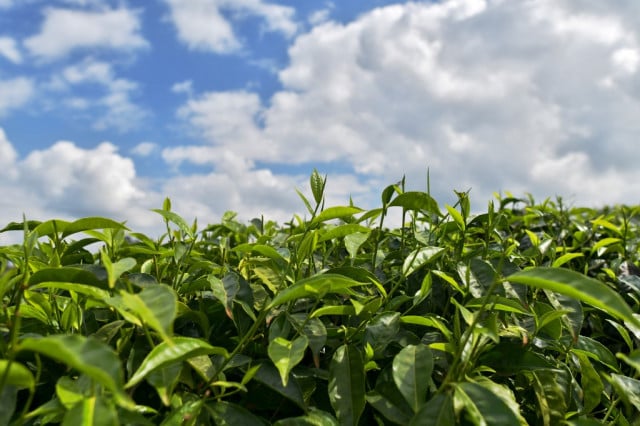Climate to ravage Kenya's tea production

- Agence France-Presse
- May 10, 2021 2:52 AM
Paris, France | Climate change is set to devastate Kenya's tea production as the world's largest exporter faces rising temperatures, erratic rainfall and insect infestations, according to analysis released on Monday.
Tea is the world's most consumed drink after water and disruption in supply from the east African nation is predicted to have a global impact.
A report from the charity Christian Aid outlined the various threats Kenya faces to its key black tea crop, as well as the dangers that other countries are likely to encounter as the planet continues to warm.
Citing a peer-reviewed study, the report said that the quadruple threat of rising temperatures, erratic rainfall, droughts and new insect infestations are forecast to destroy 26.2 percent of the country's optimal tea growing areas by 2050.
And climate change is expected to reduce the areas with medium quality growing conditions by nearly 40 percent in the same time frame.
"For generations we have carefully cultivated our tea farms and we are proud that the tea that we grow here is the best in the world," said Richard Koskei, a tea farmer from Kenya's western highlands.
"But climate change poses a real threat to us. We cannot predict seasons anymore, temperatures are rising, and rainfall is more erratic."
Karimi Kinoti, head of Christian Aid's Africa division, said tea was just another example of how people living in countries least responsible for the climate crisis are bearing the heaviest burden.
"Africans make up 17 percent of the world's population but we generate just four percent of the greenhouse gas emissions that have caused the climate crisis," she said.
"And yet it is we who are suffering the brunt of the impacts of climate change."
- 'World will be watching' -
The report warned that the livelihoods of more than three million people in Kenya's tea industry would come under threat in the next two decades.
Britain, the biggest per capita tea consumer, is set to host crunch UN climate talks in Glasgow in November.
Mohamed Adow, director of the Power Shift Africa climate and energy think tank, said the COP26 negotiations presented a vital opportunity for richer nations to provide proper support for poorer ones already having to adapt to climate change.
"As a major historical polluter and the creator of the industrial revolution the UK has played a big part in the climate emergency which we Kenyans are suffering from," he said.
"This year, as hosts of the G7 and COP26, the UK has a big role to play in tackling it.
"The whole world will be watching, especially Kenyan tea farmers and other people on the front lines of the climate crisis," added Adow.
© Agence France-Presse















